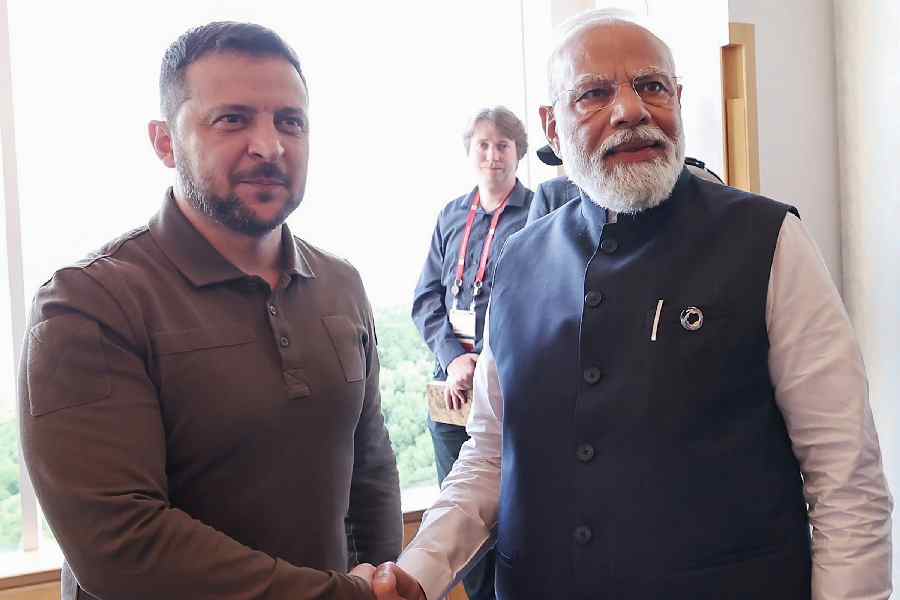Prime Minister Narendra Modi on Sunday said he views the current situation in Ukraine as an issue of humanity and human values and not of politics or economy even as he called for respecting international law, sovereignty and territorial integrity of all nations.
In an address at a G7 Working Session in Hiroshima, Modi also strongly pitched for raising voice collectively against unilateral attempts to change the status quo, asserting that any tension and dispute should be resolved peacefully through dialogue.
The prime minister also referred to his talks with Ukrainian President Volodymyr Zelenskyy on Saturday and reiterated that India will do whatever is possible to resolve the conflict.
Modi's comments came after Zelenskyy addressed the G7 leaders seeking global support for Ukraine’s efforts to defend itself against Russian aggression. The war in Ukraine has been the overwhelming focus of the three-day summit.
The prime minister also invoked Buddha and said there is no such problem in the modern age whose solution cannot be found in his teachings. He quoted Buddha to say that enmity is pacified by affinity and that "we should move forward together with everyone in this spirit." "Today we heard from President Zelensky. I also met him yesterday. I do not consider the current situation as an issue of politics or economy. I believe it is an issue of humanity, an issue of human values," the prime minister said.
"We have said from the beginning, that dialogue and diplomacy is the only way. And to solve this situation, we will try as much as possible, whatever can be done from India," he said.
Modi said all countries must respect the UN Charter, international law and the sovereignty and territorial integrity of all nations and called for raising voice together against unilateral attempts to change the status quo.
The prime minister's comments came against the backdrop of the lingering border row with China in eastern Ladakh and Russia's invasion of Ukraine.
"It is necessary that all countries respect the UN Charter, international law and sovereignty and territorial integrity of all countries. Raise your voice together against unilateral attempts to change the status quo," he said.
"India has always been of the opinion that any tension, any dispute should be resolved peacefully, through dialogue. And if a solution is found by law, it should be accepted. And in this spirit, India resolved its land and maritime boundary dispute with Bangladesh," he said.
The prime minister said that in the current global situation, the maximum and the most profound effects of the food, fuel and fertilizer crisis are being felt by the developing countries.
"Global peace, stability and prosperity is a common objective of all of us. In today's interconnected world, tension in any one region affects all countries. And, developing countries, which have limited resources, are affected the most," he said.
"Due to the current global situation, the maximum and most profound effects of the food, fuel and fertilizer crisis are being suffered by these countries," he added.
Modi said Buddha had given a solution centuries ago to war, unrest and instability that the world is facing today.
"In India, and here in Japan too, Lord Buddha has been followed for thousands of years. There is no problem in the modern age, whose solution we cannot find in the teachings of Buddha," he said.
The group of seven (G7), comprising the US, France, the UK, Italy, Germany, Canada and Japan, represent the world's richest democracies. Under its G7 presidency, Japan invited India and seven other countries to the summit.
Except for the headline, this story has not been edited by The Telegraph Online staff and has been published from a syndicated feed.











